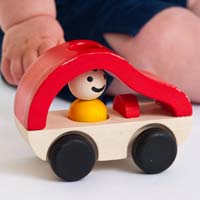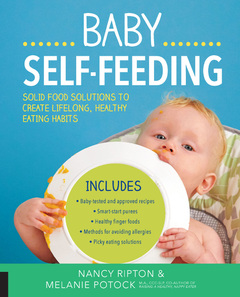Does your Baby have Colic?
Your guide to coping with a colicky baby
In This Article

Few things are more stressful than an inconsolable baby. If your baby cries for hours on end and you’re ready to tear out your hair, it could be colic. Here’s what you can do.
Help for Colicky Babies
The frustrating thing about colic is doctors don’t know why it occurs. It may be related to the immaturity of a baby's digestive system, but that doesn’t explain why some babies get it and others don’t.
Colic usually affects newborns and can last until five months of age. But every baby is different. Try the following list of suggestions and look for patterns in your baby's crying to provide clues as to which is most helpful for them.
- If breastfeeding, feed on demand (cue feeding), for nutrition as well as comfort, as often as your baby needs a calming influence.
- If breastfeeding, try avoiding eating foods that may cause gas in your baby, such as dairy products, caffeine, cabbage, broccoli and other gassy vegetables.
- If bottle feeding, offer more frequent, but smaller meals; experiment with different formulas with your health care provider's approval.
- Hold your baby in a more upright position for feeding and directly afterwards.
- Experiment with when, and how often, you burp your baby.
- Invest in a baby sling or carrier and use it during colicky periods.
- Give your baby a warm bath.
- Hold your baby with her legs curled up toward her belly.
- Massage your baby's tummy, or give him a full massage.
- Lay your baby tummy down across your lap and massage or pat his back.




